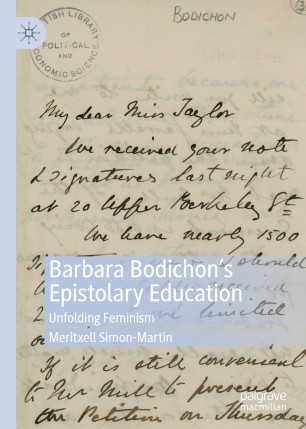

Most ebook files are in PDF format, so you can easily read them using various software such as Foxit Reader or directly on the Google Chrome browser.
Some ebook files are released by publishers in other formats such as .awz, .mobi, .epub, .fb2, etc. You may need to install specific software to read these formats on mobile/PC, such as Calibre.
Please read the tutorial at this link: https://ebookbell.com/faq
We offer FREE conversion to the popular formats you request; however, this may take some time. Therefore, right after payment, please email us, and we will try to provide the service as quickly as possible.
For some exceptional file formats or broken links (if any), please refrain from opening any disputes. Instead, email us first, and we will try to assist within a maximum of 6 hours.
EbookBell Team

0.0
0 reviews"This book brings together feminist histories in education with an innovative approach to epistolary narrative analytics. In deploying the notion of the epistolary bildung the author rigorously and eloquently shows how the correspondence of Barbara Bodichon can shed fresh light in a range of personal problems and public issues in women’s lives, which remain relevant today"
- Maria Tamboukou, Professor of Feminist Studies, University of East London, UK
This book assesses Barbara Bodichon’s significance in the history of the women’s movement in Britain by elaborating a conceptualisation of letters as sources of feminist development. Bodichon was the leader of the first women’s suffrage committee in England, which collected 1,500 signatures in favour of the female vote – a petition presented in the House of Commons by sympathising MPs to support the amendment of the 1867 Reform Bill. This book explores the significance of letter-exchange in Barbara Bodichon’s feminist becoming as she managed to mobilize partisans and secure signatures by means of chains of friendship letters spreading across the country. For letters functioned as platforms where, concomitantly to her making sense of her experiential input, Bodichon adopted, redefined and challenged circulating discourses – transforming them in the process and hence contributing to the production of feminist knowledge, intersubjectively and collaboratively in dialogue with her addressees. At the crossroads of history of feminism, gender history and history of women’s education, this book explores the significance of letter-exchange in Bodichon’s development into one of the galvanizing figures of the women’s rights movement in Victorian England.